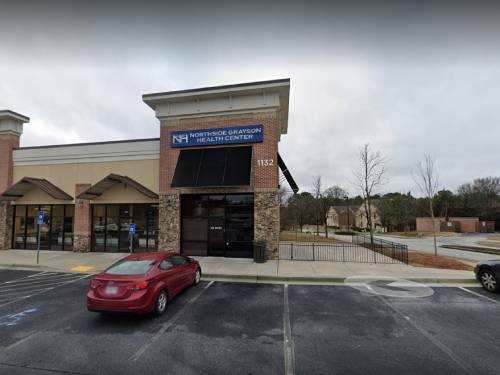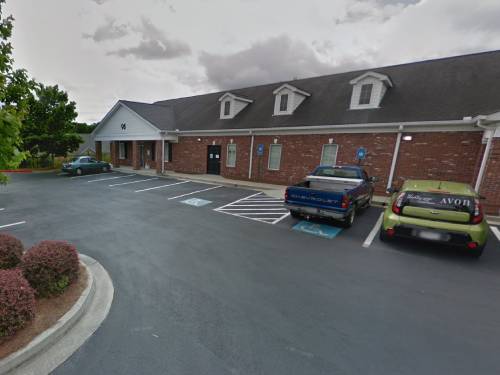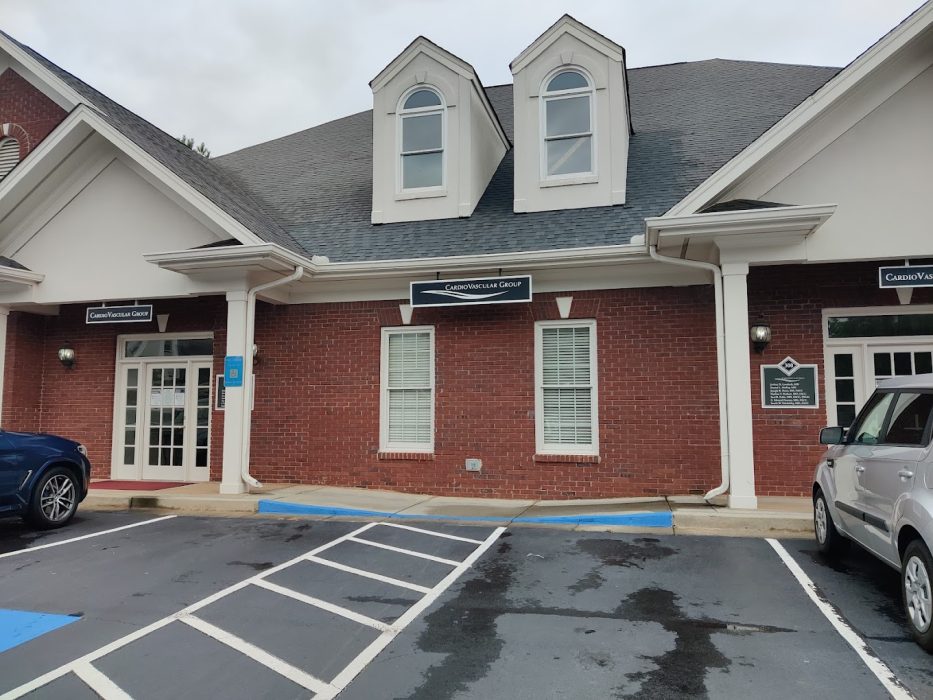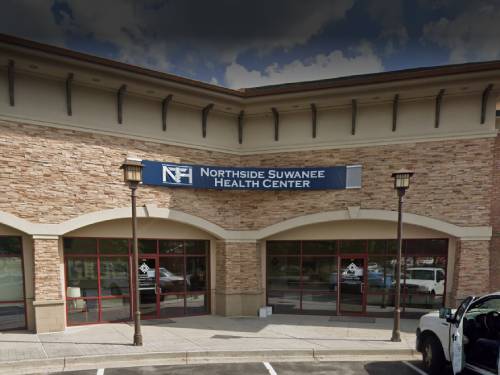Blood Clotting

Causes And Treatment Of Blood Clotting
Blood clots are gel-like formations of blood that accumulate in your veins or arteries when blood changes from liquid to partially solid. Blood clotting is a regular bodily function that occurs to stop your body from losing too much blood when you get injured. However, sometimes blood clots can form when they shouldn’t have and do not dissolve on their own, which can be dangerous for your health.
You’ve likely heard about blood clots, but how can they impact your heart health? Excessive or unwanted clotting can pose serious risks to your cardiovascular system. If you’re concerned about your risk for blood clots or have a family history of clotting disorders, consider visiting our Atlanta heart doctors for a thorough evaluation.
Blood clotting, or coagulation, is your body’s natural defense against excessive bleeding. It’s like your body’s bandage, forming a plug to seal off damaged blood vessels. However, clots form inappropriately or don’t dissolve properly, leading to dangerous blockages in your blood vessels.
You might wonder why blood clots are so concerning if they’re natural. The danger lies in where these clots can travel. A clot that forms in one part of your body can break loose and move through your bloodstream, potentially lodging in critical areas like your heart, lungs, or brain. This can lead to life-threatening conditions such as heart attack, pulmonary embolism, or stroke.
Blood clotting issues can cause symptoms like swelling, pain, or warmth in your legs if a clot forms in a deep vein (deep vein thrombosis). If a clot affects blood flow to your heart, you could feel chest pain or shortness of breath. These symptoms can be subtle at first but may worsen over time.
By visiting our Atlanta heart doctors, you’re taking a proactive step toward safeguarding your cardiovascular health. Our cardiologists are experts in detecting and managing blood clotting disorders. They can perform specialized tests to assess your risk and identify any underlying conditions that might increase your likelihood of developing dangerous clots.
During your visit, you’ll receive personalized care. Our doctors will evaluate your risk factors, such as age, smoking, obesity, certain medications, or genetic predisposition. They’ll work with you to develop a management plan, which might involve lifestyle changes, medication to prevent clots, or strategies to improve circulation.
Don’t wait for a clot to form before taking action. Schedule an appointment with our Atlanta heart doctors today to assess your risk and develop a prevention plan. While blood clotting is a necessary bodily function, it is crucial to ensure it’s happening correctly and at the right times. Being proactive is key to cardiovascular health, and our team is here to help you maintain optimal circulation and reduce your risk of clot-related complications.
Please read for more information on blood clotting and how CVG offers comprehensive cardiac care.
Types Of Blood Clotting
Risk Factors For Blood Clotting
Causes Of Blood Clotting
Testing For Blood Clotting
Treatment For Blood Clotting
The goal of treating blood clots is to prevent the clot from getting larger or breaking loose. Treatment varies based on the severity of the clot and where in the body it’s located. Typically, your doctor will recommend medications such as anticoagulants, also known as blood thinners, which help prevent blood clots from forming. For life-threatening blood clots, drugs called thrombolytics can dissolve clots that are already formed.
Your doctor may also recommend that you wear compression stockings, which are tight fitting stockings that provide pressure to reduce leg swelling and prevent clots from forming. In more severe cases, you may require surgery to either remove or dissolve the blood clot. Other forms of treatment include stents and vena cava filters.
Symptoms Of Blood Clotting
The symptoms of a blood clot depends on which part of the body the clot has developed, although some people experience no symptoms at all from blood clots. If the clot has formed in the abdomen, you may experience nausea or vomiting, severe pain in the belly area, diarrhea, and bloating. A clot that forms in the arms or legs can give you symptoms such as swelling, redness, warmth, pain, and tenderness.
A blood clot in the brain, known as a stroke, can cause a range of symptoms depending where it is located in the brain. These symptoms include problems speaking or seeing, inability to move or feel one side of the body, and in some cases, seizures. If a blood clot forms in the heart, it can cause symptoms that are similar to a heart attack such as chest pain, sweating, pain in the left arm, and shortness of breath.
A blood clot can also form in the lungs, which can cause chest pain, difficulty breathing, dizziness, sweating, and coughing, which can sometimes be so intense that you cough up blood. Blood clots can also form in the kidneys which prevent them from removing waste from your body. This can lead to symptoms such as pain in the side of your belly, legs, or thighs, blood in your urine, fever, nausea or vomiting, high blood pressure, difficulty breathing, leg swelling, and even kidney failure.
Prevention Of Blood Clotting
Why Choose CVG?
Related Conditions:
- Causes And Treatment For Heart Arrhythmia
- Causes And Treatment Of Pulmonary Stenosis
- Expert Insights on Cardiac Catheterization
- Expert Insights on Low Blood Pressure
- Exploring the Latest Advances in Atrial Fibrillation Treatment
- Dangerously high cholesterol?
- Get Your Blood Pressure Test Today!
- Understanding Electrical Cardioversion
- What Are ACE Inhibitors Used For?
- What foods are high in cholesterol?
- What Heart Flutters Can Mean
- What is Heart Failure & How to Treat it?
- What Is The Success Rate Of The Watchman Procedure?
Top Conditions:
- How long can someone live with an enlarged heart?
- Pros and Cons of the Watchman Device
- Risks and Complications of Cardiac Catheterization
- Side Effects Of The Watchman Device
- The Benefits of Cardiac Catheterization
- The Dangers Of High Blood Pressure
- The Dangers Of High Cholesterol
- The Watchman Implant Procedure
- Tips To Lower High Cholesterol
- Understanding Cardiac Catheterization
Call to Schedule an Appointment
Board-certified Doctors
CVG’s twenty board-certified heart doctors will guide you through your healthcare journey with the utmost compassion and individual attention. We aim to provide you with state-of-the-art cardiac care that includes the full spectrum of services, from testing to diagnosis and treatment. The doctor/patient relationship is built on trust. Through our combined efforts, we can conquer any challenge that comes our way.
Invasive therapies may also treat an abnormal heart rhythm, such as electrical cardioversion, which sends electrical impulses through your chest wall and allows normal heart rhythm to restart, or catheter ablation that disconnects the abnormal rhythm’s pathway. Suppose your doctor determines that electrical devices are the best course of action. In that case, you may be given a permanent pacemaker, an implantable cardioverter-defibrillator (ICD), or biventricular (B-V) pacemakers and defibrillators.
How CVG Can Help
CVG offers multiple services that can discover an enlarged heart or conditions that will lead to it. At CVG, we perform stress tests that will observe blood flow and test for various forms of heart disease. There are three types of stress tests that we perform:
- A treadmill test is a test in which you will walk on a treadmill that gets faster and steeper every 3 minutes. This will stress your heart so that our nurse or doctor can determine your heart rate and blood pressure.
- An echo test is performed before and after your treadmill test to determine how well your heart pumps blood.
- A nuclear stress test is a treadmill test that is prefaced by an injection of medicine that shows the flow of blood to your heart.
We also offer cardiac catheterization to diagnose and treat several heart issues. If any of these tests determine a problem, we offer treatment solutions such as atrial fibrillation testing and catheter ablation. Learn more about our services here, or schedule an appointment to talk to our doctors.
Schedule Your Appointment with a CVG Atlanta Area Cardiologist
Expertise, experience, and compassion are the pillars of CVG’s patient-centered cardiac care. Please schedule your appointment with CVG today. Call (770) 962-0399 or 678-582-8586. You may also request an appointment online. If you have an emergency, don’t contact us online; please call 911.
Locations That Treat Blood Clotting












